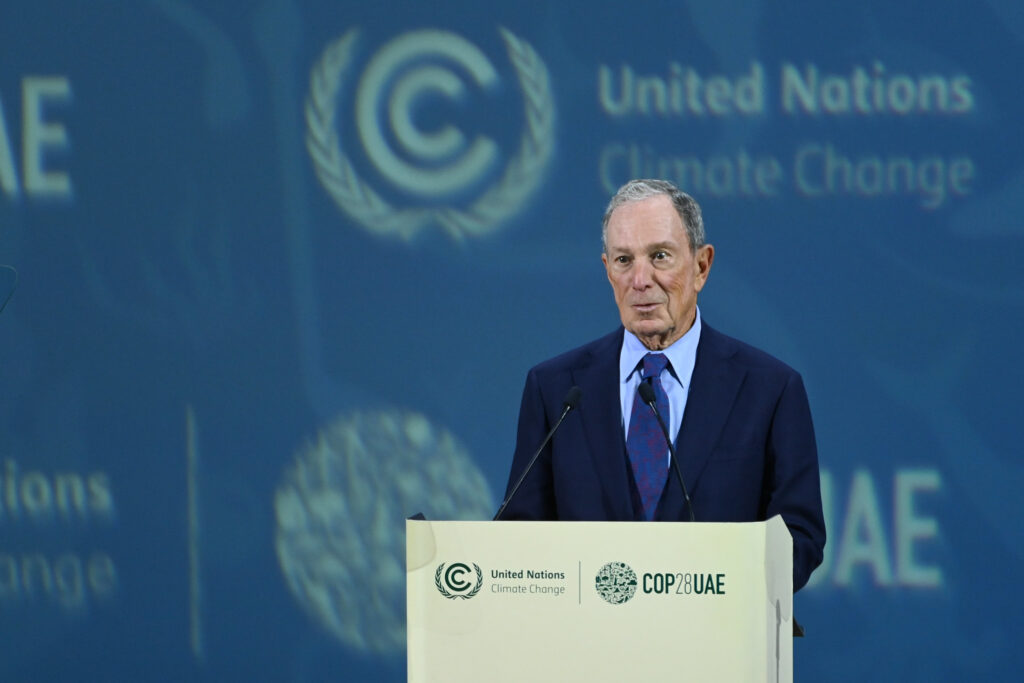The Local Climate Action Summit (LCAS) was organised by the COP28 Presidency and Bloomberg Philanthropies, on the 1st and 2nd of December. It underscored the pivotal role of local leaders in reducing emissions, addressing climate risk, and supercharging national efforts to move further and faster on climate progress.
The summit gathered national and local climate leaders to drive transformation in climate change mitigation, and among the prominent figures in attendance were the mayors of Paris, Rio de Janeiro, Tokyo, and Bogotá.
The LCAS dealt with four core themes: transforming local climate finance to mobilize significant investments, integrating local contributions into global climate action, fast-tracking the local energy transition, and strengthening local resilience and adaptation to protect communities and infrastructure from climate risks.

Why cities?
While the United Nations Framework Convention on Climate Change (UNFCCC) is centered around countries, cities can play a crucial role in the climate crisis.
With 56% of the global population residing in cities today, a figure expected to rise to 70% by 2050, cities generate over 80% of the global GDP and 75% of global greenhouse gas emissions. Thus, they act as both contributors to the climate challenge and key agents for transformative change.Their concentration of population and economic activities means they may be the venue to offer innovative and sustainable solutions. Cities, and their mayors, are also well positioned to create positive change. The relationship between authorities and citizens is much closer than national governments and thus raising awareness and setting more ambitious goals is easier. Also, hyper-local knowledge enables the development of effective policies.

Outcome of the COP28 about cities
A variety of networks and organisations, such as C40, ICLEI, and the Covenant of Mayors, establish partnerships between cities. LCAS as part of COP, is an additional venue for such cooperation, and “COP28 must be the COP of cities as well as national governments,” says a press release by C40 Cities, a global network comprising nearly 100 mayors worldwide.
At LCAS, the COP28 Presidency introduced the Coalition for High Ambition Multi-Level Partnerships (CHAMP). This initiative advocates for the inclusion of the local and regional leaders in the development of the Nationally Determined Contributions (NDCs). 71 governments, including 11 EU member states, are part of the Coalition.
Mayors Sadiq Khan of London and Yvonne Aki-Sawyerr of Freetown, co-chairs of C-40, addressed a letter to the heads of state, in which they urged global leaders to pledge a rapid phase-out of fossil fuels. Additionally, the letter advocates for a halting of investments in new fossil fuel projects and calls to cut fossil fuel usage by half by the year 2035. This is a parallel commitment to the efforts of national leaders to agree on a fossil fuel phase-out.

Noteworthy outcomes from LCAS include new research on local climate action, funds, and programs. Like CHAMP, the Joint Outcome Statement on Urbanization and Climate Change presented an action plan to boost cities in the climate change decision-making processes. Notably, a new Urban Nature Program will offer financial and technical assistance to accelerate nature-focused investments in urban areas. These may be solutions to biodiversity loss and land-use planning.
Bloomberg Philantropies, a co-host of LCAS, pledged $650 million to support local climate finance initiatives and projects at the community level. The fund will specifically be dedicated to provide technical assistance, policy support, and coalition-building efforts.
Bloomberg Philantropies, a co-host of LCAS, pledged $650 million to support local climate finance initiatives and projects at the community level. The fund will specifically be dedicated to provide technical assistance, policy support, and coalition-building efforts.

Implications for Governments
- Multilevel decision-making processes: LCAS and similar initiatives are a clear sign to the increasing relevance of cities in the fight against climate change. Should governments wish to accelerate their climate action ambitions, governments may consider to actively involve local and regional leaders in shaping climate policies. This may require new institutional processes and strong efforts for policy design.
- Financial support: To facilitate effective local climate action, national governments are called to provide financial incentives, grants, and technical assistance to cities. Simultaneously, governments may need to develop policies that encourage private sector involvement and create mechanisms to channel funds to cities for sustainable projects.
Implications for Private Firms
- Business opportunities in sustainability: Private firms, especially those that provide innovative and sustainable solutions for urban areas, may be encouraged to explore partnerships with local authorities. The increasing funds and programs signal that there is a demand for technologies and services that support local energy transition and enhance urban resilience.
- New business services: Similarly, firms may be pressured to expand the goods and services they offer to match the demand of more sustainable projects in cities. Depending on geography and location, businesses may want to engage in foresight analysis to anticipate what relevant cities may need and how they can provide or expand business for it.
- Technological Solutions: Companies providing technical assistance and innovative solutions in line with the LCAS themes can find avenues for collaboration with cities and governments.
In sum, the LCAS outcomes emphasises the importance of collaboration between different levels of government, the integration of local efforts into global strategies, and the urgent need for transformative actions. Governments and firms engaging in climate-related initiatives stand to benefit from aligning their strategies with these emerging trends.

